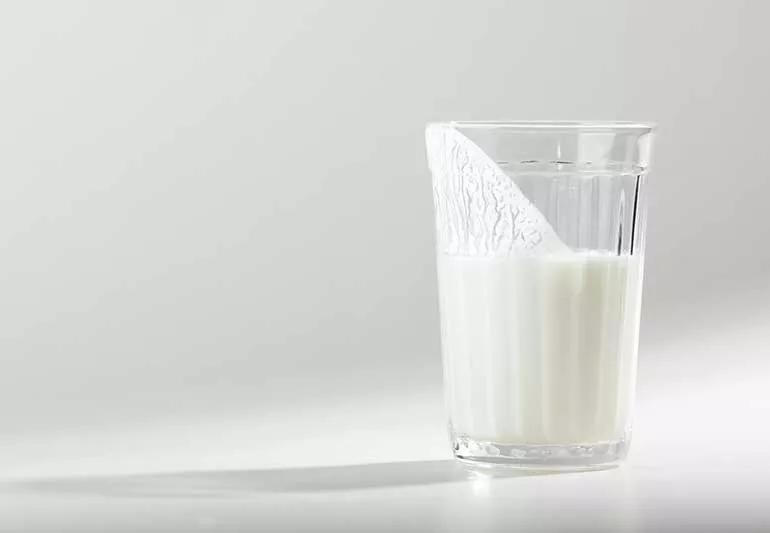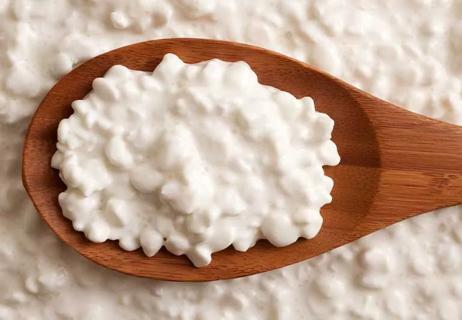A superfood, kefir is loaded with vitamins, minerals and nutrients

What is kefir? Is it a device that helps you locate lost keys? Nope. Something you plant in your garden? Nah. A new TikTok dance trend? Negative.
Advertisement
Cleveland Clinic is a non-profit academic medical center. Advertising on our site helps support our mission. We do not endorse non-Cleveland Clinic products or services. Policy
Here’s a hint: You can find kefir in the dairy section of your grocery store.
Kefir, pronounced “kee-feer,” is a fermented milk drink people have been sipping for thousands of years. And according to ancient wisdom and modern research, kefir is good for you.
“Studies are ongoing, but it seems there are many benefits of kefir,” says registered dietitian Amber Sommer, RDN, LD. “Like other foods that contain probiotics (good bacteria) and postbiotics (bacteria byproducts), kefir boosts gut health and provides a number of other health benefits.”
Kefir is made by adding kefir grains, which contain yeast and good bacteria, to cow, goat or sheep milk. The microorganisms convert lactose (milk sugar) into lactic acid, giving it a sour taste and adding lots of nutrients.
Kefir tastes like liquid yogurt and comes in plain and flavored varieties. “Watch out for sugar content in flavored kefir,” warns Sommer. “Too much sugar takes away from the health benefits of kefir. Pick products lower in sugar or stick with plain.”
Kefir’s nutritional benefits vary based on what type of milk it contains and the fermenting process. But in general, it’s better for you than yogurt because it contains more strains of probiotics and beneficial yeast.
Advertisement
Kefir is also low in lactose (milk sugar), so even people with lactose intolerance can usually drink it without a problem. Dairy-free options exist, but they don’t have the same nutritional profile as traditional kefir.
You can consider kefir a superfood, as it’s loaded with vitamins, minerals and nutrients, including:
Check out kefir’s nutritious lineup and whopping number of probiotics:
Your digestive tract is home to an entire world of microorganisms (microbiome) that include bacteria, fungi and viruses. Some of them are harmful, while others are helpful, assisting with digestion and creating substances your body needs. If the bad bacteria start to multiply and spread, it throws the microbiome off balance, causing:
Kefir contains approximately 12 active probiotic strains. When you eat probiotic and postbiotic-rich foods like kefir, it adds more good bacteria to your gut. They keep harmful bacteria in check and support gut health. One study suggests that regularly consuming kefir positively shifts the balance of organisms in the microbiome, reducing symptoms of inflammatory bowel disease. Another study found that kefir relieves chronic constipation.
Having strong bones is essential for staying active, especially as you age and lose bone mass. A glass of kefir contains the nutrients you need to build and repair bones, including:
Kefir is a gut superhero because it fights off illness-causing germs like E. coli and salmonella. In lab studies, kefir was just as effective at combating harmful bacteria as antibiotics. The good bacteria in kefir compete with harmful organisms for resources in your gut. And they also release byproducts toxic to the bad bacteria and yeast.
In addition to battling bad bacteria in your gut, kefir protects teeth against bacteria that cause cavities. A dental study compared drinking kefir with a daily fluoride rinse. The kefir was just as effective as fluoride in reducing cavity risk.
Advertisement
Protein is essential for building and repairing muscles. While kefir doesn’t have as much protein as Greek yogurt, it does have more than an egg. It also boasts magnesium — important for muscle movement — and phosphorus, which plays a vital role in the growth and repair of tissue.
If you have Type 2 diabetes, your body can’t effectively process glucose (blood sugar). Kefir may help prevent diabetes or even be part of your treatment plan to lower glucose levels. A study of people with Type 2 diabetes found that drinking 20 ounces of kefir a day helped keep glucose in check.
Keeping your fridge stocked with kefir may help you better face stressful situations. At least, that’s what one lab study on kefir consumption found. The probiotic drink changed the makeup of gut bacteria, shifting it toward those bacteria that produce gamma-aminobutyric acid (GABA). This amino acid has a calming effect on your brain, helping you relax.
Kefir also boasts other substances known for helping ease tension. These nutrients help create and regulate brain chemicals that stabilize your mood:
Kefir has several health benefits and can be a nutritious addition to your diet. Just keep in mind, says Sommer, that you can get some gas and bloating when you first start eating foods high in probiotics. Add kefir slowly as your body adjusts. And enjoy this delicious way to boost your overall health.
Advertisement

Sign up for our Health Essentials emails for expert guidance on nutrition, fitness, sleep, skin care and more.
Learn more about our editorial process.
Advertisement

Health officials say that consuming unpasteurized milk increases potential exposure to harmful bacteria

There’s definite nutritional value in chocolate milk, but the added sugar and calories can be a concern

Medications, dietary changes, abdominal massage and physical activity can all help you start to feel better

Experiment with numerous dairy alternatives or try taking a lactase enzyme medication before you eat dairy

Lactose is difficult to breakdown and digest because of its complexity

Be sure to check the labels of common foods like canned tuna, bread, hot dogs and chocolate

This dairy product can help you lose weight, manage blood sugar and strengthen bones

Rich in calcium and protein, milk has 18 of 22 essential nutrients that your body needs

Even small moments of time outdoors can help reduce stress, boost mood and restore a sense of calm

A correct prescription helps your eyes see clearly — but as natural changes occur, you may need stronger or different eyeglasses

Both are medical emergencies, but they are very distinct events with different causes